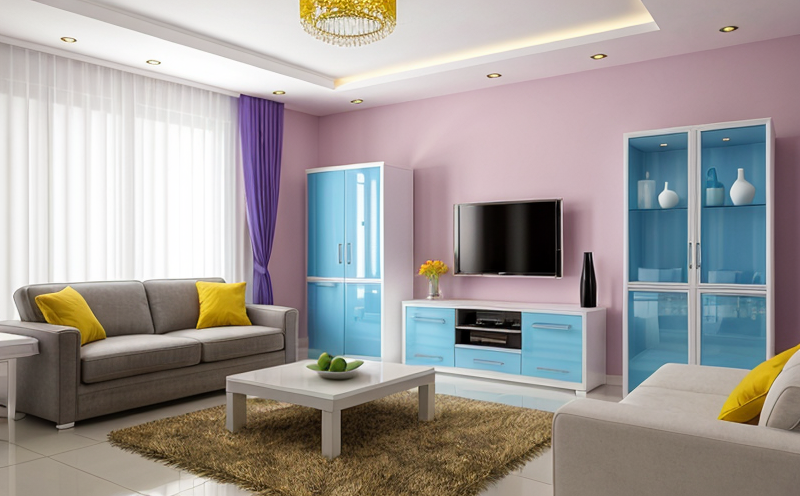UL 50E Enclosure Integrity Testing of Decorative Plastic Surfaces
The UL 50E standard is a recognized benchmark for ensuring the integrity and safety of enclosures in various products. This service focuses on testing decorative plastic surfaces to confirm their ability to withstand environmental stresses, including moisture ingress, mechanical impact, and temperature fluctuations.
Decorative plastics are widely used in home decoration because they offer aesthetics, durability, and versatility. However, the integrity of these surfaces can be compromised by exposure to various elements during use. The UL 50E test ensures that decorative plastic enclosures meet rigorous safety standards before being marketed or sold.
The testing process involves subjecting specimens to specific environmental conditions designed to replicate real-world usage scenarios. This includes temperature cycling, humidity exposure, and mechanical impact tests. The goal is to determine whether the decorative plastic surfaces can maintain their integrity under these challenging conditions without compromising safety.
During specimen preparation, the focus is on ensuring that the test specimens accurately represent the intended end-use product. This might involve cutting samples from larger panels or using specific shapes and sizes as defined by UL 50E standards. The preparation process also includes cleaning and conditioning the samples to remove any contaminants that could affect test results.
The testing apparatus used in this service is designed to simulate real-world conditions as closely as possible. This includes temperature chambers capable of cycling between extreme temperatures, humidity cabinets for moisture exposure, and impact testers for mechanical stress assessment. The precision and repeatability of these instruments ensure consistent and accurate test results.
Once the specimens have been prepared and subjected to environmental stresses, they are evaluated based on predefined acceptance criteria established by UL 50E. These criteria focus on structural integrity, adhesion properties, and resistance to moisture penetration. Successful testing ensures that decorative plastic surfaces meet the highest safety standards set forth by this internationally recognized standard.
The results of the UL 50E test are reported in a comprehensive manner, detailing all aspects of the test procedure, specimen preparation, environmental conditions, and performance metrics. This detailed reporting helps quality managers, compliance officers, R&D engineers, and procurement teams make informed decisions regarding product design, manufacturing processes, and material selection.
| Application Area | Test Criteria | Expected Outcomes |
|---|---|---|
| Cabinet Manufacturing | Moisture resistance, impact strength, adhesion properties | Ensures durability and safety of decorative plastic surfaces in cabinets. |
| Furniture Design | Temperature cycling, humidity exposure, mechanical stress | Achieves consistent quality in decorative plastics for furniture products. |
| Curtain Rod Production | Environmental durability, aesthetic retention | Maintains the integrity and appearance of plastic curtain rods over time. |
| Door Decorations | Impact resistance, weathering resistance | Guarantees durability and safety in door decorative applications. |
| Wall Panels | Mechanical strength, moisture barrier properties | Provides robust and aesthetically pleasing wall panel solutions. |





